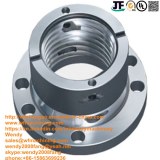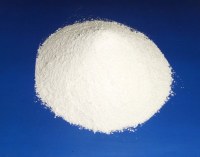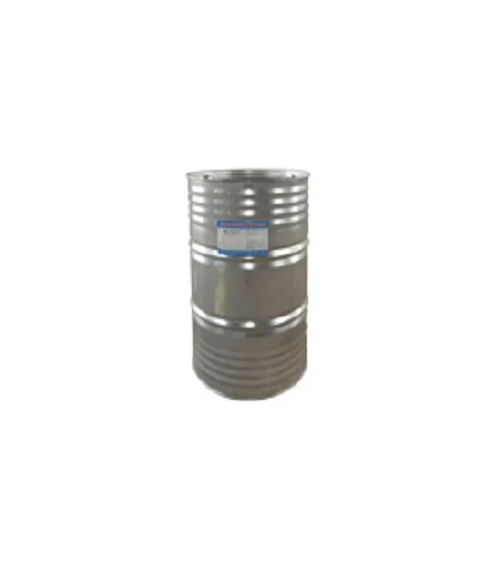PHOSPHATE ESTERS
PHOSPHATE ESTERS
Phosphate esters are a group of organic compounds that are widely used as lubricants, surfactants, and flame retardants, among other applications. These compounds are derived from dibutyl phosphoric acid and s, and their unique properties make them suitable for a broad range of industrial applications. Ethoxylated phosphate esters have excellent thermal stability, flame retardancy, and lubricating properties, which make them ideal for use in high-temperature applications, hydraulic fluids, and fire-resistant fluids. They are also used as surfactants in liquid detergents, corrosion inhibitors, and anti-wear agents in lubricants. Phosphate ester based fluids have a wide range of applications, from aerospace and automotive industries to the production of textiles, plastics, and pharmaceuticals.
Types Of Phosphate Esters
Tributyl Phosphate (TBP)
Triisobutyl Phosphate (TIBP)
Trioctyl Phosphate (TOP)
Di (2-ethylhexyl) Phosphate (P204)
2-ethylhexyl Hydrogen-2-ethylhexyl Phosphonate (P507)
High-efficiency Extractant for Separation of Nickel and Cobalt-AD290
Future Trends And Developments In The Production And Applications Of Phosphate Esters
Development of Bio-Based Phosphate Esters: There is an increasing trend towards the development of sustainable and bio-based chemicals. Bio-based phosphate esters are being developed using renewable resources such as vegetable oils and biomass. This development can offer a sustainable and eco-friendly alternative to petroleum-derived phosphate esters.
Advanced Synthesis Methods: Advances in synthesis methods such as enzymatic catalysis, microwave-assisted synthesis, and flow chemistry are being explored to produce high-quality phosphate esters more efficiently.
Enhanced Properties: Ongoing research is focused on improving the properties of phosphate esters such as their lubrication, flame retardancy, and thermal stability. This development could lead to the creation of new applications and further expansion of existing uses.
Emerging Applications: There are emerging applications of phosphate ester corrosion inhibitor in the pharmaceutical industry, such as their use in the development of protein-based drugs. They are also being tested as potential flame retardants for lithium-ion batteries, which could help prevent battery-related fires.
Environmental and Safety Regulations: The increasing focus on the environment and safety regulations is driving the development of greener and safer chemicals in various industries. This development will require the production of phosphate esters with reduced environmental impact and improved safety profiles.
Applications Of Phosphate Esters In Various Industries
Chemical Industry: Phosphate esters are used as a solvent in the production of resins, synthetic fibers, and plastics. They are used for the production of dimethyl formamide (DMF), a widely used solvent in the chemical industry.
Aerospace Industry: Phosphate esters are used in the production of hydraulic fluids for space vehicles and aircraft due to their high thermal stability and low volatility. They are also used as a lubricant in gas turbine engines.
Automotive Industry: Phosphate esters are used as a component of brake fluids due to their excellent thermal stability and compatibility with rubber. They are also used as anti-wear agents in engine oils.
Fire Protection Industry: Phosphate esters are used as flame retardants in polymers, textiles, and plastic products. They have the ability to reduce the flammability of materials and can help prevent fire from spreading.
Oil and Gas Industry: Phosphate esters are used as a lubricant and wear inhibitor in the oil and gas industry due to their high pressure and temperature resistance. They are also used as an anti-corrosive agent in metalworking fluid.
Pharmaceutical Industry: Phosphate esters are used to modify the structure of proteins and enzymes, which are often used as therapeutic agents.
Electronics Industry: Phosphate esters are used as surfactants in liquid crystal displays (LCDs) and other electronic devices. They help to stabilize the liquid crystal molecules and improve their optical properties.
Thermal Stability Of Phosphate Esters And Their Use In High-Temperature Applications
Phosphate esters are known for their excellent thermal stability, making them ideal for use in high-temperature applications. The thermal stability of phosphate esters is due to the presence of polar phosphorous-oxygen bonds, which make them resistant to thermal degradation. Phosphate esters are used in various high-temperature applications, including oil and gas production, aerospace, and industrial processes. In the oil and gas industry, phosphate esters are used as additives in drilling fluids and hydraulic fracturing fluids. They are also used as corrosion inhibitors and antifoaming agents. In the aerospace industry, phosphate esters are used as hydraulic fluids due to their high thermal stability and ability to operate at high temperatures.
Phosphate esters are also used in industrial processes that involve high temperatures, such as metalworking, heat transfer fluids, and lubricants. In metalworking, phosphate esters are used as lubricants, coolants, and corrosion inhibitors. They are also used as heat transfer fluids in high-temperature processes, such as polymer production.
The high thermal stability of dibutyl hydrogen phosphate, dibutyl phenyl phosphate esters makes them well suited for use in applications where other materials may break down at high temperatures. Phosphate esters retain their properties when exposed to temperatures ranging from 150°C to over 350°C. They have excellent oxidative stability and do not form sludge or deposits at high temperatures.
Overall, the thermal stability of phosphate esters makes them an ideal choice for demanding high-temperature applications, such as those found in the oil and gas, aerospace, and industrial sectors. The unique properties of phosphate esters make them valuable for achieving reliable and efficient processes in high-temperature environments.
Anti-Wear Properties Of Phosphate Esters And Their Use In Lubricants
Phosphate esters are used as additives in lubricants to enhance their anti-wear properties and improve their overall performance. These compounds are characterized by their strong polar nature and excellent thermal and oxidative stability, which make them ideal for use in high-temperature and high-pressure applications.
Phosphate esters work by promoting the formation of surface films on metal surfaces, which provide a protective layer against wear and corrosion. This film is formed due to the chemical reaction between the phosphate ester and the metal surface, which produces a tough, adhesive, and highly protective layer.
The anti-wear properties of phosphate esters are attributed to their ability to absorb and neutralize metal particles generated during the sliding motion of surfaces. This prevents these particles from causing wear and tear and ultimately increases the lifespan of the lubricant and the equipment.
Phosphate esters are commonly used in hydraulic fluids, turbine oils, and gear oils, where they offer excellent anti-wear and anti-corrosion performance. These compounds also provide good thermal and oxidative stability, which allows them to withstand high temperatures without undergoing thermal degradation and oxidation.
In addition, phosphate esters are environmentally friendly and do not pose a threat to human health or the environment. They are readily biodegradable and can be easily disposed of without causing harm to the environment.
In conclusion, phosphate esters are effective additives for improving the anti-wear properties of lubricants. Their polar nature, thermal and oxidative stability, and ability to promote the formation of protective surface films make them ideal for use in high-temperature and high-pressure applications. Additionally, their environmental friendliness and biodegradability make them a suitable choice for sustainable lubricant formulations.
As one of cooling tower suppliers, we will do our best to meet all the needs of customers.
Personne à contacter : hua Long, 037967891167
Bonne affaire : acheter au vendeur
Nous vous invitons à lire nos conditions générales d'utilisations. Vous pouvez aussi vous rendre sur nos FAQ et consulter notre page d'informations sur les risques liés à la contrefaçon.
|
Cette page concerne les importateurs et exportateurs de PHOSPHATE ESTERS Rechercher dans la catégorie : Pro / B2B Rechercher dans la catégorie : phosphate, esters |
Mercredi 24 décembre 2014
Quantité : 5000 PER M - Prix : 200-500US dollors ac
325-3500 Meshes making powder mill 1. Brief introduction of Ultra-fine 325-3500 Meshes making powder mill Absorbing the advantages of manufacturing companies home and abroad, VTM series Ultra-fine Grinder is our company's patent research products in 2005 after so many investigation...
Henan Liwei Industry Co.,Ltd.
- huifang
- 0371 - zhnegzhou
- +15 2 25 12 39 72
Vendredi 07 août 2015
Quantité : 500ton/mon - Prix : FOBqingdao USD10
https://cn.linkedin.com/in/wendymachinery https://youtu.be/fmqnmN1s75I https://youtu.be/fd1nZCyKEUg https://youtu.be/XBrMQkLSf1c https://youtu.be/g9pd1OFJlgM https://youtu.be/GJmDCCG-Pyc https://youtu.be/s8W3LMGd9Bk https://youtu.be/d0DCuyfIoik Product Details Basic Info...
Weifang Shengao Machinery Co.,Ltd.
- wendy2008fang
- 261041 - Weifang
- +86 15863699236
Samedi 23 avril 2016
Quantité : 100000 Ton - Prix : US $200 - 300 / Metr
Product Name: sodium carbonate Product Name: soda ash Product specifications: Grade Product trademark: Bo Chong Product brand: Bo innovation Product marks: according to customer requirements, marks can be black or blue Product packaging: 40 kg per bag, 750 kg two Product content: 99...
Weifang Bo Chuang Chemical Co., Ltd.
- 262737 - Shouguang City
- +18 3 53 62 62 31
Paiement sécurisé










